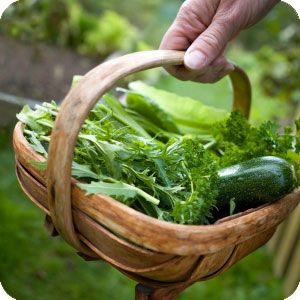recovery basics | pure air & water | nourishing food | restful sleep | exercise | detoxification | non-toxic lifestyle | emotional health | spirituality | energetic health | sexuality | brain/limbic system | dental health | organ health

Nourishing Food
We are what we eat! But there is no one diet right for all people all of the time. Our nutritional needs change daily, seasonally, yearly, and are affected by many factors – like our geography, genetics, activity level, and state of health. If we are fighting an infection we might need immune boosting foods, if it’s a hot summer in Miami we might stick to a raw foods diet with lots of fresh vegetable juices. During a cold winter in Illinois we might crave comfort foods, heavy on the animal protein and healthy fats. If one’s gut is inflamed, cooked foods may be easier on the intestines than raw. The point is, to pay attention to your body and listen closely to what it needs. Don’t let a book or latest fad tell you how or what to eat. Develop your intuition around food and your body will thank you for years to come.
Some basic tips to guide you:
• Be concerned about the source of your food: eat organic, non-GMO vegetables and wild, grass-fed, free range animal proteins.
• Eat locally, and seasonally.
• Focus on low -lectin (anti-inflammatory) foods and methods of food preparation.
• Go on a 4-day rotation diet to eliminate hidden food allergies.
• Say a blessing/prayer/grace for your food before eating.
• Chew well.
• Drink lots of pure water throughout the day, except during meals.
• Incorporate healing herbal infusions into your routine, like nettle and oatstraw.
• Give your intestines a break every now and then – blend your salads, make nourishing soups and broths.
• Drink fresh green vegetable juices daily – try wheatgrass juice for a potent detox, and cucumber/celery/sunflower sprouts/pea shoots for a protein boost.
• Grow your own veggies – plant them in rock soil to boost their nutritional content.
• Dehydrate vegetables to make delicious healthy snacks.
• Consume lots of sprouts, and a wide variety of them. Sprouts are packed with protein and other nutrients and are so easy to grow, right in your kitchen!
• Eat weeds like dandelion leaves and stinging nettle – wild foods tend to be more nutrient-dense than their domesticated counterparts.
• Seek out omega-3s and other good fats like those found in avocados, olive oil, and nuts and seeds.
• Make your own food-based probiotics by fermenting kefir, kombucha, yogurt, cheeses, sauerkraut, vinegars, and healing beers. (Avoid these if you have mold sensitivities).
• Eat wild game – hare, beaver, elk, kangaroo – for healthier, more nutrient-dense meats.
• Add minerals to your diet with Quinton Electrolytes, Concentrace® or other trace mineral drops in your water, or get creative with homemade vinegars.
avoid: refined sugar, wheat, gluten, packaged foods, GMOs, food additives
recommend a healing tool for this page
Note: please check with a qualified health practitioner before incorporating any new tool into your recovery program.





